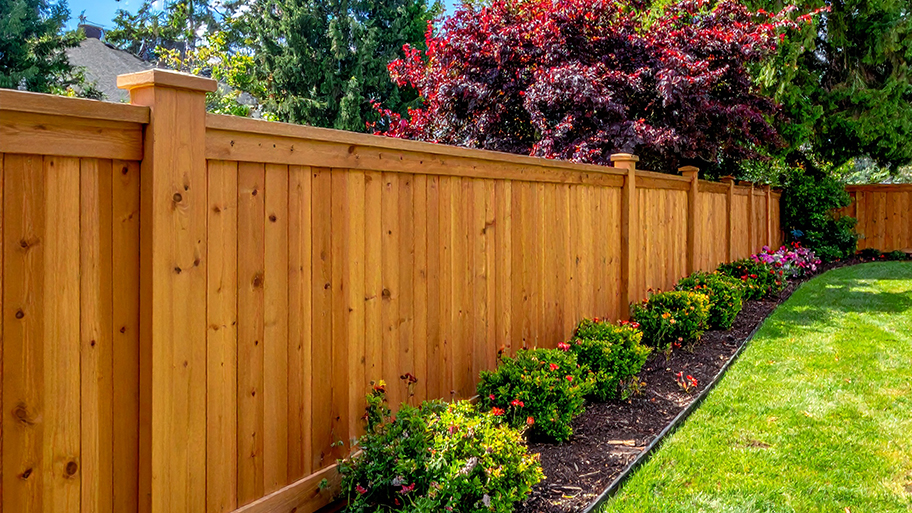
Pressure washing your fence can restore its appearance and keep your home looking great. Learn how much it costs based on factors like square footage and material.
When the power of pressure is too mighty


Pressure washers are incredibly strong, and can break skin and cause other injuries
A pressure washer should never be used on any living thing—no humans, pets, or plants
Don’t use a pressure washer while working on a ladder or on your roof—the recoil could throw you off balance
Pressure washers and electricity never mix—keep the machine away from breaker boxes
Given their tremendous power, there are many items you should not pressure wash. Pressure washers massively bump up the water pressure coming from your hose. For context, a normal garden hose delivers water at a rate of 50 pounds per square inch (psi), but a pressure washer operates at 1,500 to 4,000 psi. When used on the correct type of surfaces, pressure washers can safely remove stubborn stains and dirt in a heartbeat.
To operate a pressure washer safely, keep this list of items you should never pressure wash handy before your next outdoor cleaning project. If you want to be extra safe, hire a professional power washer near you for the job instead.
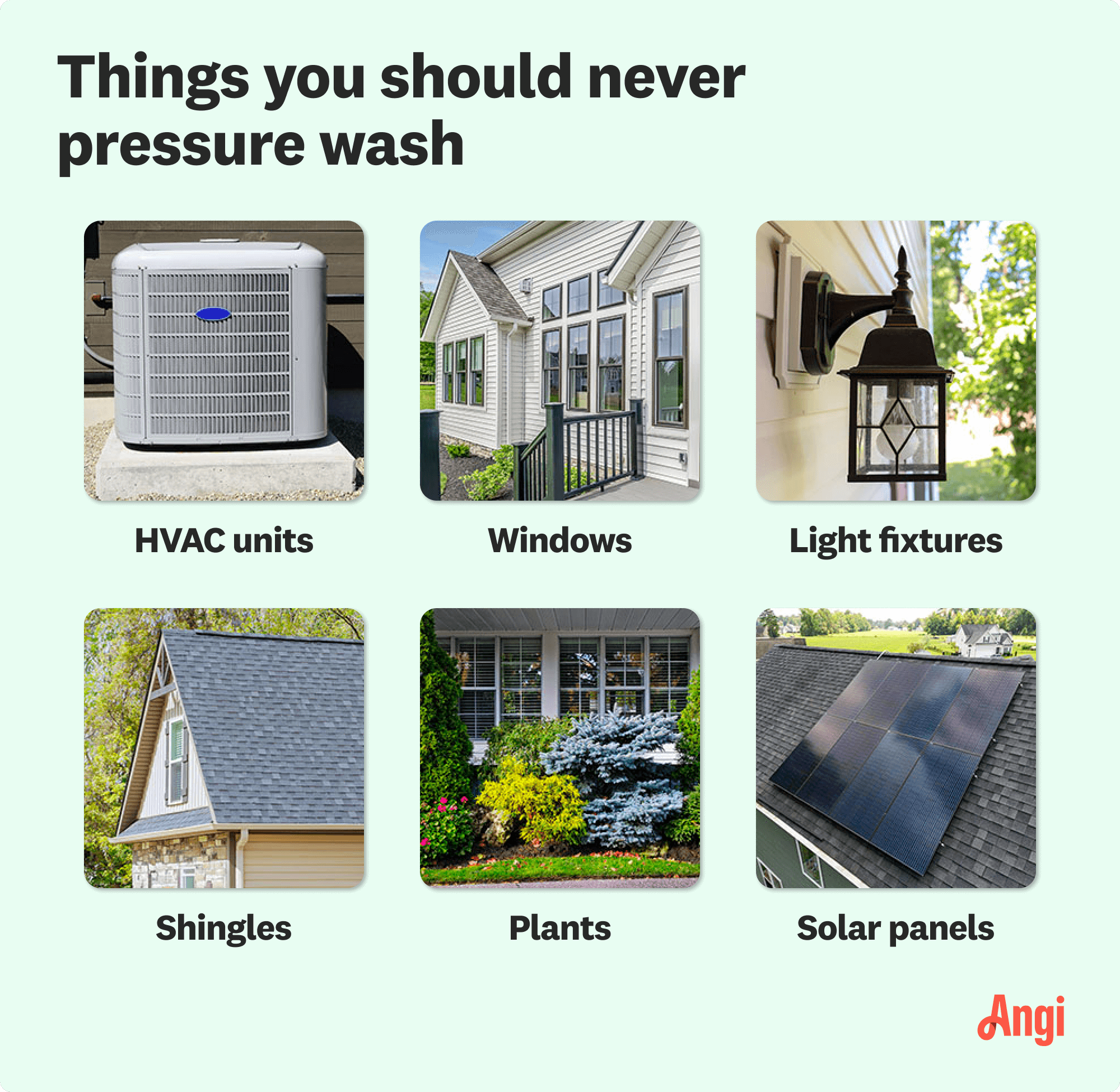
High water pressure can strip away the granules on asphalt shingles that protect your roof or knock some of the shingles off altogether—lost shingles can lead to leaks, which can then turn into bigger problems, such as mold. In addition, using a pressure washer while working on a ladder is very dangerous—the recoil from the wand could easily throw you off balance. A proper roof cleaning should always be done by a professional roof cleaning service.
Glass is fragile, and a pressure washer can easily cause your windows to get blown in. Pressure washing your windows could lead to bigger problems than some dirt and grime: you will likely end up replacing your window, and you’ll have a big mess of water and glass to clean up.
Air conditioner units have small, delicate parts, such as fins—using a pressure washer can crush or bend these parts, leading to the unit malfunctioning or shortening its overall lifespan.
Electric meters have cases on them, usually made from glass or plastic. While these cases are meant to protect against extreme weather, they might not be able to withstand the power coming from a pressure washer. Using a pressure washer on an electric meter might cause water to creep into the electrical system.
Porch lighting or backyard lighting can get dirty over time, especially if you live in a place with harsh weather. Even with all the grime, refrain from cleaning them with a pressure washer as they could become damaged, and you might get water into the electrical elements. To clean your outdoor lights, remove the lightbulbs and clean the unit with a microfiber cloth that has been dampened with soapy water.
Cleaning clogged gutters is a labor-intensive and lengthy task, but it’s not one you should expedite with the help of a pressure washer. You should only use a pressure washer to clean the exterior of your gutters, and make sure you’re using the lowest psi possible with a gentle nozzle. If you’re unsure, put the pressure washer wand down and clean your gutters by hand or call a pro for help.
Lead paint is hazardous—it should be carefully removed by a professional. A pressure washer can send bits of lead paint up into the air, giving you no control over where it lands.
If your mortar or brick is old, a pressure washer can knock off any loose bits, causing it to wear down sooner than it should, leaving your home vulnerable. You can pressure wash the brick itself, but you should only do it on a very low psi setting and try not to go over the mortar. If you have really dirty or grimy brick, leave the job to a pro.
Some pressure washers claim to be suitable for vehicles, and sometimes this is true if the pressure washer is kept on the very lowest setting. But is it worth the risk? Pressure washers have varying power, depending on the angle, the distance the object is from the washer, and the nozzle you use—a small miscalculation could mean a dent in your car or chips in your car’s paint. And don’t think about using a washer under the hood—any water that gets into the engine could lead to expensive repairs.
Unless you intend to remove the stain, never use a pressure washer on stained wood. The power of the washer will pull the stain right off.
In advance of summer bar-be-ques, you might be tempted to clean your pool with a pressure washer—but you should stick to tried-and-true methods like chemicals or robotic pool cleaners. High water pressure, when used on a cement pool, can damage the plastic shell, causing leaks. Vinyl liners are even more susceptible, and the pressure washer can easily tear holes in any place where the liner is brittle.
It might be tempting to give the trees in your yard a good washing, getting rid of any dirt and pollen that’s found their way onto the bark. But the high-pressure water can strip away a tree’s bark, weakening it and leaving it vulnerable to pests and disease. On weaker plants, a pressure washer can damage or kill them by eroding the layer of topsoil and exposing the plant’s roots.
In addition to trees, you should never pressure wash any other living thing—all plants, humans, and pets can be seriously harmed by a pressure washer, causing cuts, bruises, or other abrasions.
Patio furniture can take a beating and get dirty quickly while sitting in rain, sun, and other weather extremes. Don’t clean your wooden furniture with a pressure washer, though, as it can cause the wood to split, chip, or splinter. A pressure washer will also remove any wood sealant you have applied to the furniture, which will make it more susceptible to warping, mold, and other issues down the line. To clean wood furniture, look for cleaners that are specially made for wood, and always scrub with the grain pattern.
Fiber cement siding is becoming increasingly popular due to its noteworthy durability, but it’s not strong enough to withstand the power from a pressure washer, which can damage the siding’s surface. Instead, use a low-pressure hose and bristle brush to clean off any dirt.
Just like with an air conditioning unit, a generator has many small parts and components that can be damaged by a pressure washer. Instead, use a compressor to blow away dust and dirt, then wipe your generator down with a rag and some degreaser.
Using a pressure washer on solar panels can cause the panels to detach from their frame or damage the outer layer of the frame. In fact, some solar panel manufacturers will void your warranty if you pressure wash them.
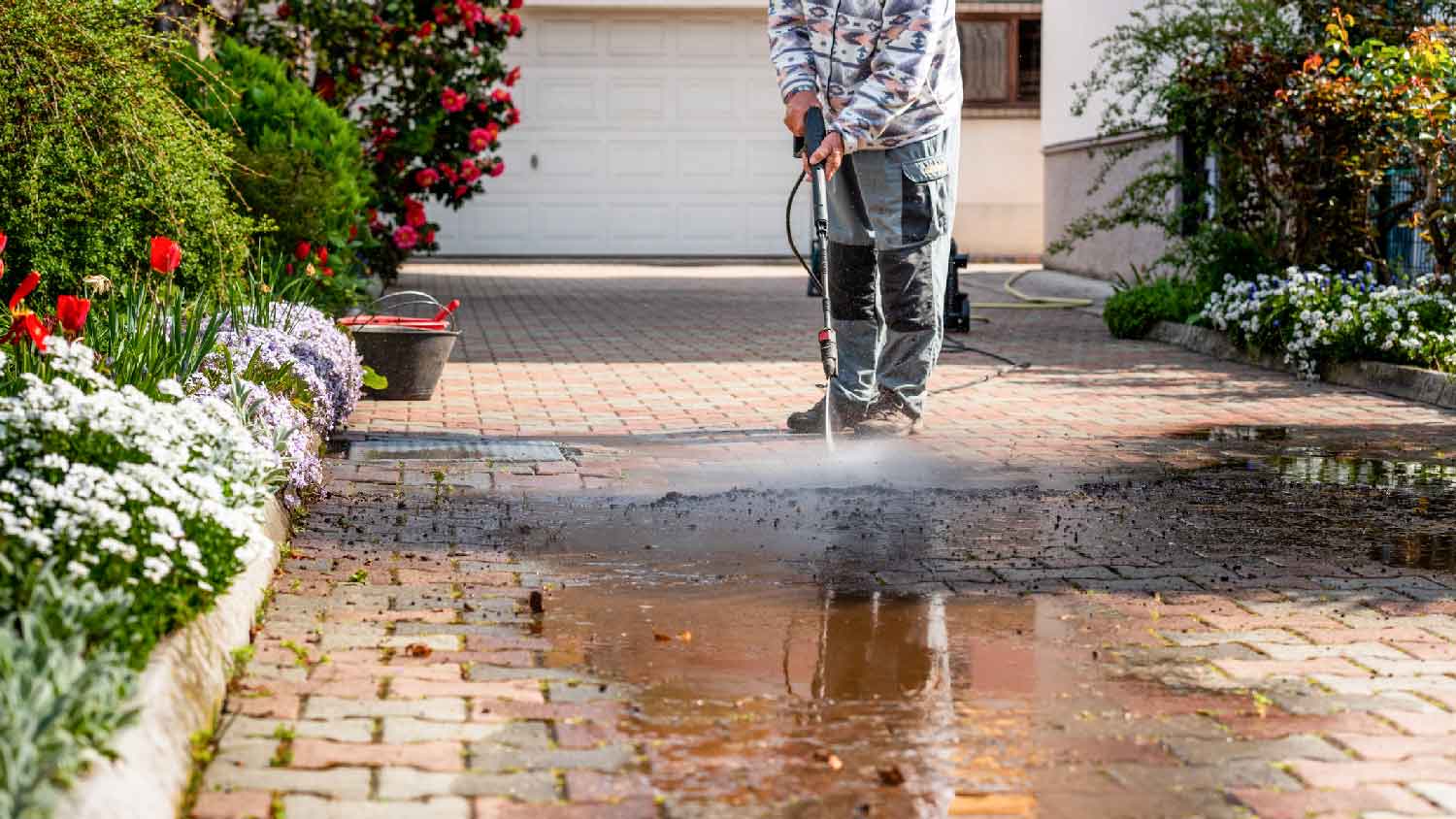
While we just provided a long list of things that should never be pressure washed, there are several home areas that can benefit from the high power of a pressure washer, including:
Driveways: A pressure washer can make short work of the oil and grease stains living on your driveway.
Outdoor stairs: Cement outdoor stairs can be cleaned of their foot traffic with the help of a pressure washer.
Garage flooring: If your garage has cement flooring, use a pressure washer to sweep away any debris—just be sure to pick up any objects on the floor first.
Non-lead paint: If you’re looking to strip away paint, a pressure washer can do the work in half the time of a scraper.
Pressure washing can make cleaning a breeze, but it’s important to remember that this tool is dangerous and needs to be handled with safety and care. When pressure washing something, be sure to:
Never point a pressure washer at yourself or any other living thing
Wear protective gloves and boots
Plug the pressure washer into a properly grounded receptacle
Test the ground fault circuit interrupter before using the washer
Keep children away from the pressure washer, and never let them use it
Avoid working on ladders or on your roof
Be aware of your surroundings—make sure there is nothing you could trip on while you work
"Before using a power washer, make sure to clear your space. Move any debris, cover electrical outlets, shut your windows, and drape your plants with tarps to protect them."
— John Gabrielli, Owner of Air Temp Solutions, New Castle, Delaware
From average costs to expert advice, get all the answers you need to get your job done.

Pressure washing your fence can restore its appearance and keep your home looking great. Learn how much it costs based on factors like square footage and material.
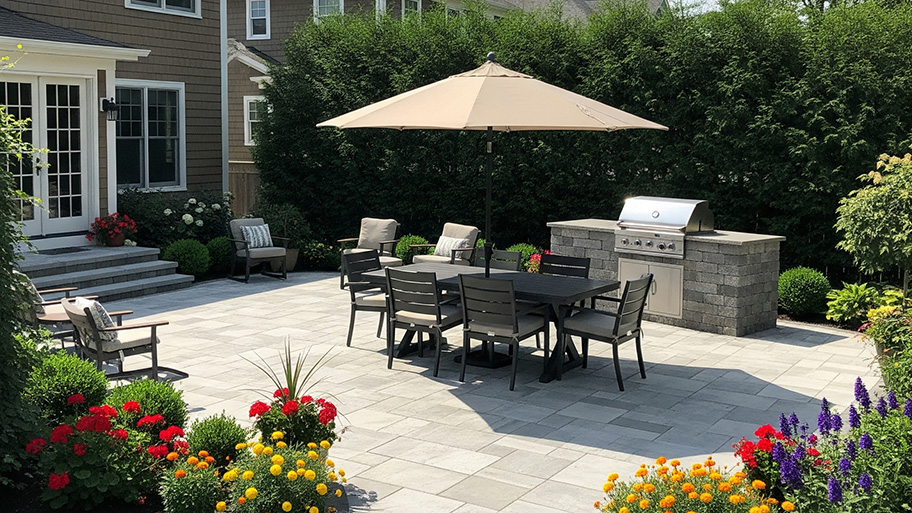
The cost to pressure wash a patio depends on the size of the surface and the type of patio you have, as well as whether you DIY or hire a pressure washing pro.
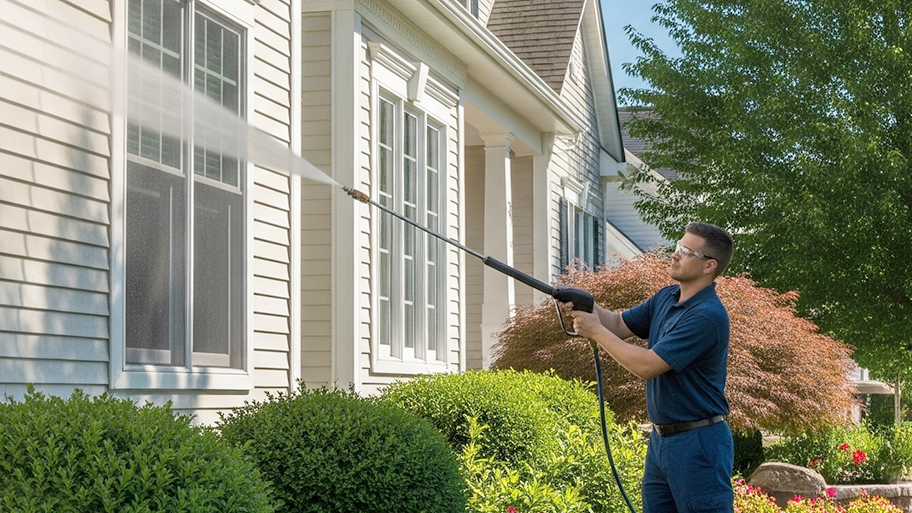
Need to breathe new life into your dirty siding and trim? Explore the cost to pressure wash a house to boost your curb appeal instantly.

Learning how to clean stucco can involve a pressure washer for convenience, but you also can use other methods. We’ll explain what to do for proper cleaning.

Does your pressure washer lack pressure? Or will it not start at all? Know who repairs power washers and who to call to get yours fixed.

Investing in a pressure washer can make it easier to keep your house looking great. Use this pressure washer buying guide to learn all about how to choose the right pressure washer for your home.